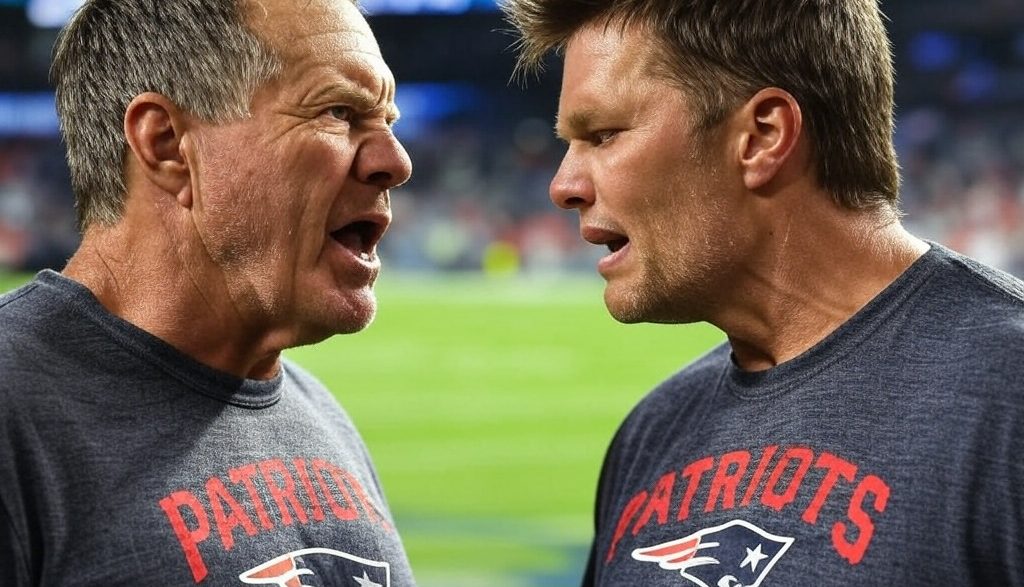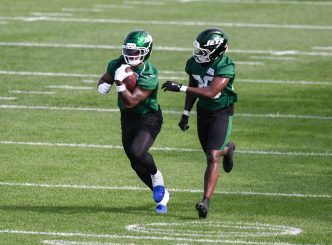The tension between Bill Belichick and Patriots owner Robert Kraft continues to be a topic of conversation, with the latest back-and-forth demonstrating that realignment of their relationship is still a long way off. Recently, Belichick addressed Kraft’s remarks from last month, where Kraft acknowledged the significant risk involved in bringing Belichick on board back in 2000 after acquiring him from the New York Jets.
Belichick did not hold back in sharing his perspective with ESPN. “As I told Robert multiple times through the years, I took a big risk by taking the New England Patriots head coaching job,” he stated, reflecting on his decision during a time when he had the chance to lead the Jets. Belichick pointed out the instability surrounding the Jets’ ownership at that time and how it factored into his ultimate choice.
Interestingly, there had been a competitive landscape for the Jets’ head coaching position that involved Woody Johnson and Charles Dolan vying for control after the passing of Leon Hess, the former owner. But it wasn’t just the Jets that raised concerns for Belichick; he also cited warnings from previous Patriots coaches and other NFL insiders who cautioned him about the internal challenges that come with the New England position. Highlighting his sense of foresight, he said, “I made it clear that we would have to change the way the team was managed to regain the previously attained success.”
Kraft, on the other hand, has no regrets about his decision. Speaking at Fanatics Fest, he reiterated the importance of Belichick’s hiring, especially given that Belichick had a record of 36-44 during his time with the Browns. “I got hammered in the Boston area, but he was with us for 24 years,” Kraft remarked, clearly proud of what the partnership accomplished. The journey from a 5-11 start in Belichick’s first season to a Super Bowl victory in the following season, launched by Tom Brady’s ascension after Drew Bledsoe’s injury, is an iconic narrative that has forever marked their legacy together—culminating in six Super Bowl titles.
Now at 73 and having transitioned to the college football coaching ranks at UNC, Belichick seems reflective about the opportunities he was given in New England. He told ESPN he “appreciated Robert giving me the opportunity” to remake the Patriots’ roster. However, when it came to Kraft’s comments, he noted that those questions should be directed to Kraft himself, adding a layer of complexity to the discussion around their dynamic.
Belichick’s recent book, “The Art of Winning: Lessons from My Life in Football,” does not mention Kraft, which drew attention during a CBS Sunday Morning interview. When asked about Kraft’s absence from his narrative, Belichick defended the focus of his book, asserting that it centers on his personal experiences.
As for Belichick’s departure as head coach of the Patriots following a challenging 4-13 season, it was initially framed as a mutual decision. However, Kraft later characterized it as a firing, leaving fans and analysts alike questioning the true nature of their split. Belichick maintained his stance, reiterating the mutual aspect of the decision during the CBS interview, which might add another layer of intrigue to their already complicated relationship.
Adding to the narrative is the public scrutiny surrounding Belichick’s personal life. After his recent interview, there has been some speculation about his relationship with 24-year-old Jordon Hudson, especially when she shot down questions about their initial meeting. Such details, while perhaps peripheral to the main story of his coaching career, underscore the multifaceted nature of Belichick’s public persona beyond the football field.
In both his professional and personal affairs, Belichick continues to embody the complexities of a figure who has not only shaped the landscape of the NFL but whose relationships remain intriguingly layered and multifaceted.








